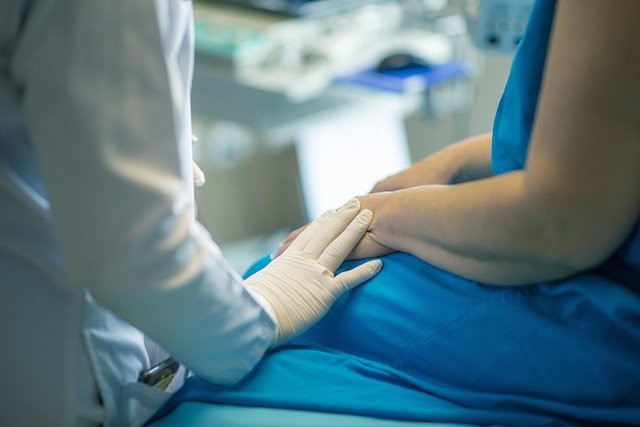Crohn's Disease Treatment: Understanding Options and Early Intervention
Why Early Treatment Matters. Without appropriate treatment, Crohn’s disease can lead to serious complications such as strictures (narrowing of the bowel), abscesses, fistulas, and even the need for surgery. Early intervention and modern therapies can help reduce inflammation and prevent long-term damage.

What Are the Primary Goals of Crohn’s Disease Treatment?
The management of Crohn’s disease follows several key objectives that guide treatment decisions. First and foremost is achieving and maintaining remission—periods when the disease is inactive and symptoms subside. Reducing inflammation in the digestive tract is essential, as persistent inflammation not only causes immediate symptoms but can lead to lasting damage over time.
Another crucial goal is preventing complications that may require surgical intervention. These complications include strictures (narrowing of the bowel), fistulas (abnormal connections between organs), and abscesses. Treatment also aims to improve the patient’s quality of life by alleviating symptoms such as abdominal pain, diarrhea, and fatigue that can significantly impact daily activities.
Nutritional support is another vital component, as Crohn’s disease can interfere with the absorption of nutrients, potentially leading to deficiencies and weight loss. Successful treatment plans address all these aspects through a combination of medications, lifestyle modifications, and sometimes surgery.
How Do Medications Play a Role in Managing Crohn’s Disease?
Medication forms the cornerstone of Crohn’s disease treatment, with several classes of drugs targeting different aspects of the condition. Anti-inflammatory drugs, particularly aminosalicylates like mesalamine, are often first-line treatments for mild to moderate Crohn’s disease. These medications work directly on the intestinal lining to decrease inflammation.
For more severe cases, corticosteroids such as prednisone provide rapid relief from inflammation and symptoms. However, due to their significant side effects, they’re typically used for short-term “flare” management rather than long-term therapy. Immunomodulators like azathioprine and methotrexate work by suppressing the immune response that drives inflammation, allowing many patients to maintain remission without steroids.
Biologic therapies represent a significant advancement in Crohn’s treatment. These medications, including infliximab (Remicade), adalimumab (Humira), and ustekinumab (Stelara), target specific proteins involved in the inflammatory process. They can be highly effective for moderate to severe Crohn’s disease, particularly in cases resistant to other treatments. Newer targeted small molecule drugs like JAK inhibitors are also showing promise in clinical trials.
Antibiotics may be prescribed to treat infections, fistulas, or abscesses, while antidiarrheal medications and pain relievers can help manage specific symptoms. The medication strategy often involves a step-up approach, starting with milder treatments and escalating as needed, though some patients with severe disease may begin with more potent therapies immediately.
What Dietary Changes Can Help Manage Crohn’s Symptoms?
While no single diet works for all Crohn’s patients, dietary modifications can significantly impact symptom management. During flares, a low-residue or low-fiber diet may help reduce abdominal pain and diarrhea by limiting foods that are difficult to digest. This typically means avoiding raw fruits and vegetables, nuts, seeds, and high-fiber foods.
Some patients benefit from identifying and eliminating trigger foods through an elimination diet under medical supervision. Common triggers include spicy foods, dairy products (if lactose intolerant), high-fat foods, alcohol, and caffeine. Conversely, incorporating anti-inflammatory foods like fatty fish rich in omega-3s, turmeric, and ginger may help some patients.
Small, frequent meals rather than large ones can reduce digestive stress. Adequate hydration is crucial, especially for those experiencing diarrhea. During severe flares or after surgery, patients might require a temporary liquid diet or even total parenteral nutrition (TPN) to allow the bowel to rest while maintaining nutrition.
Working with a registered dietitian who specializes in inflammatory bowel disease is highly beneficial, as they can develop personalized eating plans that address both symptom management and nutritional needs. Maintaining proper nutrition is essential, as malnutrition is a common complication of Crohn’s disease.
When Is Surgery Necessary for Crohn’s Disease Patients?
Despite advances in medical therapy, approximately 70% of people with Crohn’s disease will require surgery at some point in their lifetime. Surgery becomes necessary when medications fail to control symptoms, or when complications develop that threaten the patient’s health.
Common indications for surgery include bowel obstruction from strictures (narrowed segments of intestine), fistulas that don’t respond to medical therapy, abscesses requiring drainage, and perforations in the intestinal wall. Some patients may need surgery for severe bleeding that cannot be controlled through other means.
The most common surgical procedures for Crohn’s disease include bowel resection (removing damaged portions of the intestine), strictureplasty (widening narrowed sections without removal), and procedures to repair or remove fistulas. Unlike ulcerative colitis, Crohn’s disease cannot be “cured” with surgery, and inflammation may eventually recur in previously unaffected areas.
Minimally invasive techniques like laparoscopic surgery are increasingly used, resulting in smaller incisions, less pain, and faster recovery times. After surgery, medications are typically continued to reduce the risk of recurrence. The decision to pursue surgery should involve careful discussion between the patient, gastroenterologist, and surgeon, weighing the potential benefits against the risks.
What Are the Early Signs of Crohn’s Disease to Watch For?
Recognizing the early warning signs of Crohn’s disease can lead to earlier diagnosis and treatment, potentially preventing complications. Persistent diarrhea that doesn’t improve with over-the-counter remedies is often one of the first symptoms. Abdominal pain, particularly in the lower right abdomen, can range from mild cramping to severe pain and may worsen after eating.
Unexplained weight loss, sometimes significant, occurs as the body struggles to absorb nutrients. Fatigue that seems disproportionate to activity levels can signal both the inflammatory process and resulting nutritional deficiencies. Blood in the stool, ranging from bright red to black and tarry, indicates intestinal bleeding and requires immediate medical attention.
Less obvious signs include mouth sores, joint pain, skin issues like erythema nodosum (painful red nodules), and eye inflammation. Children with Crohn’s disease may experience delayed growth or puberty. Recurrent fevers, particularly when accompanied by other digestive symptoms, can indicate ongoing inflammation.
Anyone experiencing persistent digestive symptoms, especially those lasting more than a few weeks or accompanied by warning signs like weight loss or blood in stool, should consult a healthcare provider for proper evaluation. Early diagnosis allows for prompt treatment, which can significantly improve outcomes and quality of life.
This article is for informational purposes only and should not be considered medical advice. Please consult a qualified healthcare professional for personalized guidance and treatment.




